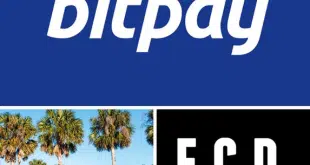While many payments firms have complained about the expensive and time-consuming process of getting state money-transmitter licenses, and, more recently, of potentially needing licenses to operate virtual currencies, the regulatory pendulum occasionally swings the other way. Late last month, Illinois quietly dropped a 2013 cease-and-desist order against merchant processor Square Inc., which offers mobile-payment services, for operating in the state without a money-transmitter license.
The Illinois Department of Financial and Professional Regulation (IDFPR) withdrew the order as part of a policy change that says third-party processors no longer need to apply for licensure under the state’s Transfer of Money Act (TOMA). Department Secretary Bryan A. Schneider, an appointee of Republican Gov. Bruce Rauner, who took office in January, called the change “a way to foster the availability of safe and innovative payment technologies for Illinois residents.”
“Rapidly evolving payment technologies present great benefits for Illinois consumers,” said Schneider in a news release. “To ensure that new technologies are readily available in Illinois, we must establish a regulatory framework that does not impose unnecessary barriers, and the associated costs and delays, to technological innovation.”
The IDFPR in early 2013 issued cease-and-desist orders against San Francisco-based Square and prepaid card services provider NetSpend, now part of processor Total System Services Inc. (TSYS). An IDFPR spokesperson at the time called the orders a consumer-protection issue. Both companies said they were working with the IDFPR to resolve its concerns, and they continued to operate in the state.
The order against Square alleged the company violated the money-transmitter law by not having a license for its Square Register, a mobile-payments service for merchants. The case essentially came down to what degree it handles consumer funds. As a merchant processor, Square is a step away from that function and thus not the type of entity TOMA aims to regulate, according to payments attorney Anita Boomstein, a partner at New York City-based Hughes Hubbard & Reed LLP.
“After close review, the Department determined that third-party payment processors act as the agent for the merchant accepting and processing funds, activity that does not fall under the definition of transmitting money as specified in TOMA,” the release says.
An IDFPR spokesperson adds in an email message that the key elements in determining if a company falls under the third-party payment processor definition are whether it is acting as an agent for, and has a signed agreement with, a merchant.
“Given the position of the parties and the ability of the merchant to seek contractual recourse, the Department decided the consumer-protection policy justifications for enforcing TOMA do not apply in this situation,” the spokesperson says. “There is, essentially, no risk of customer harm because the customer will always leave the transaction with the goods or services bargained for, and only the merchant would bear the risk of nonperformance. However, due to the contractual relationship with the third-party payment processor, the merchant will always have a method to address any issues with the third-party payment processor.”
Square declined comment. The IDFPR says NetSpend has obtained an Illinois money-transmitter license. Austin, Texas-based NetSpend has direct relationships with consumers through its prepaid card services.
Boomstein says the Illinois action is similar to one taken recently by California state government and also reflects the policy of the U.S. Treasury Department’s Financial Crimes Enforcement Network (FinCen), which oversees money-services businesses and aims to prevent money laundering.
“FinCen has an exception for entities that act solely as a merchant processor, they don’t fall within the definition of a money-services businesses,” she says.




